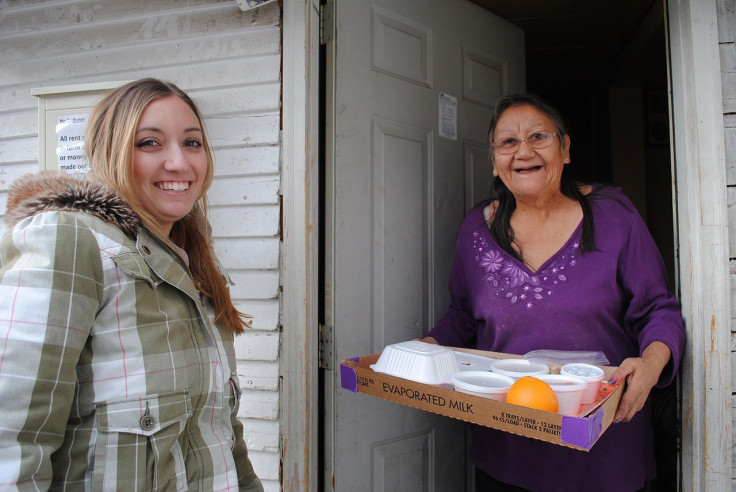Home Delivery Services Providing Comfort Food For The Elderly Reduce Feelings Of Loneliness And Isolation

Loneliness is prevalent throughout the elderly population, but there may be a solution to reduce feelings of isolation in the form of food, according to new research. Comfort food takes on a whole new meaning for Meals on Wheels, a nonprofit organization that delivers food to nearly every community across the country, providing the elderly population with a nutritious meal, companionship, and reassurance of safety. Researchers from Brown University set out to investigate the benefits of the program by studying the elderly and published their findings in The Journals of Gerontology with hopes of improving care.
"This continues to build the body of evidence that home-delivered meals provide more than nutrition and food security," said the study’s lead author Kali Thomas, assistant professor at Brown University’s School of Public Health and researcher at the Providence Veterans Affairs Medical Center, in a press release. "In a time when resources are being further constrained and demand is increasing, it is important that we have evidence that guides decision-making in terms of what services to provide and how best to provide them."
Thomas has a unique perspective as a former Meals on Wheels volunteer. She has intimately seen the power meal delivery has for an elderly person’s life. After analyzing data from a randomized, controlled trial with more than 600 participants from eight cities, he designed a study to measure how meal delivery could combat loneliness. Each participant on a Meals for Wheels waiting list was approved for delivery of either daily fresh meals or weekly bulk deliveries of frozen meals for 15 weeks. A third group remained on the waiting list for comparison purposes. Participants were interviewed in the beginning of the study and again at the end to assess their individual feelings of loneliness, along with their mental and physical health.
Elderly participants who lived alone and received meals reported significant reductions in feelings of isolation and loneliness. They were also less worried about staying in their homes alone and reported feeling safer. Those who received meals on a daily basis experienced a greater effect than those who received meals on a weekly basis. It was an added bonus for researchers to find participants who received meals experienced fewer falls and hospitalizations. More than half of the participants lived alone, 20 percent reported having contact with friends and family fewer than one or two times a month, while 14 percent reported having no one to call on for help at all.
“My granny, who lived to be 98 years old while still independent in her home, was grateful for the meals and enjoyed the visits with her meals delivery person,” Thomas said. “It was because of her experience that I began volunteering and had the opportunity to witness firsthand the benefits that Meals on Wheels provides. Our research supports the hypothesis that the delivery, in addition to the meal itself, has numerous positive impacts on clients’ lives.”
Source: Thomas KS, Akobundu U, and Dosa D. More Than A Meal? A Randomized Control trial Comparing the Effects of Home-Delivered Meals Programs on Participants’ Feelings of Loneliness. The Journals of Gerontology. 2015.



























